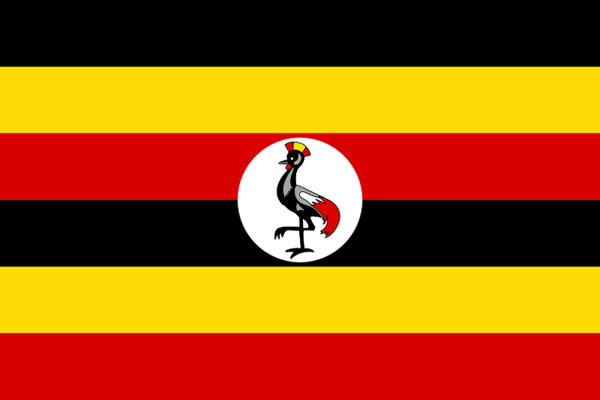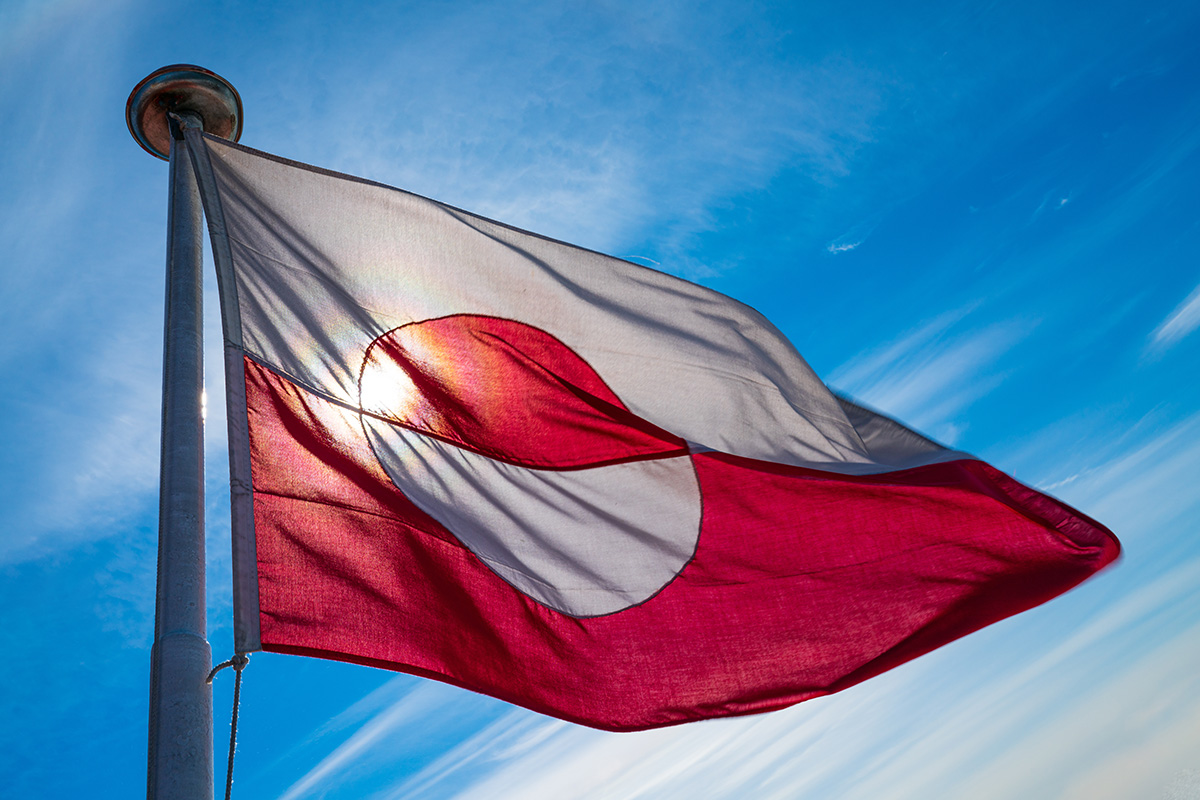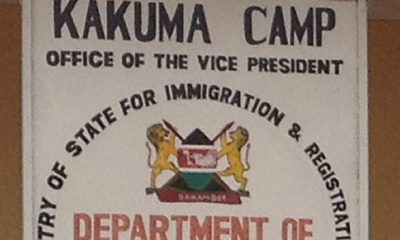World
Uganda president declines to sign queerphobic bill
Measure sent back to Parliament for review

Ugandan President Yoweri Museveni has refused to sign the country’s infamous “Sexual Offenses Bill” that Parliament approved in May, on grounds that it details offenses already covered by pre-existing laws.
“President Museveni has rejected to assent to the Sexual Offenses Bill, saying many provisions are redundant and already provided for in other legislations,” the Daily Monitor reports. “Deputy Speaker of Parliament Anita Among made the communication to the House …”
The bill has been returned to the Parliamentary Committee on Legal Affairs for review “to address the redundancies.”
Although this is a positive development for LGBTQ Ugandans and activists, the East African country is embroiled in harsh queerphobic sentiment institutionally. And there still exists a culture that makes it unsafe to live in Uganda as a queer person.
The Washington Blade spoke with Ikechukwu Uzoma, staff attorney for RFK Human Rights, and Adrian Jjuuko, executive director of Human Rights Awareness and Promotion Forum (HRAPF), before Museveni’s announcement about the details of the Sexual Offenses Bill and how its enactment could reshape Uganda’s LGBTQ landscape.
What is the Sexual Offenses Bill?
The Sexual Offenses Bill, which MP Monicah Amoding originally introduced in 2015, “seeks to consolidate laws relating to sexual offenses and provide procedural and evidential requirements during trial of sexual offenses and proposes several measures to check among others, sexual harassment in schools by guardians or teachers.”
The bill would also criminalize same-sex relationships and sex work.
“The laws were passed … reiterating sections of legislation first enforced in the country by British colonial rule,” the Guardian reports. “They condemn same-sex couples who perform acts deemed against the ‘order of nature’ to 10 years’ imprisonment.”
OutRight Action International also notes “same-sex relations have been criminalized in Uganda since British colonial times in sections 145 on ‘unnatural offenses’ and 148 on ‘indecent practices’ of the Penal Code, with a maximum sentence of life in prison foreseen. Clause 11 of the Sexual Offenses Bill further confirms this existing criminalization.”
Parliament passed the bill in May of this year. Questions regarding its legitimacy rose among LGBTQ individuals and activists as Museveni won his sixth presidential term and new MPs were sworn in.
“[When the bill was enacted], that was a time when Parliament was coming to an end, before we went into elections and [installed] a new Parliament,” said Jjuuko. “So when the new Parliament was sworn in, there was a question around what the actual legal status of a bill was that had been passed by Parliament, but not signed by the president.”
Although the proposed legislation went through an “in limbo” phase and was not fully bonafide, Jjuuko said Ugandans treated the legislation as if it were fully implemented.
“In Uganda, the law matters, but it also doesn’t. In other words it doesn’t matter what the situation is. With what the law right now is, the persecution of LGBT people will remain,” said Jjuuko.
Jjuuko further mentioned that when politicians have legislative ideas, they campaign for them in Parliament discussions and media appearances, thereby signalling to the country’s population the seriousness of whatever ideas they propose. Additionally, the word “bill” in Luganda, the country’s local language, has the same translation as the word “law.”
These campaigns, coupled with the lack of a clear distinction between a bill and law in Luganda, create a general culture where the country’s population will behave as if it were an instituted law, regardless of whether it has been signed or not.
In response to what this means for law enforcement officials and how they would treat LGBTQ citizens, Jjuuko said that police officers rely on a new form of LGBTQ persecution: Charging individuals with committing “negligent acts.”
“The police, who should know better, usually charge people with either an existing offense or some new offense,” said Jjuuko. “There’s now a new trend in Uganda [where police officers] charge someone with negligent acts of spreading disease infections, and this comes from provisions in the old penal code which is not even about COVID-19. It just [resurfaced when the pandemic began].”
Jjuuko also said the police are aware that they’re unable to charge an individual with “carnal knowledge.” They hence resort to charges of participating in intimate acts that can spread disease infections. So, even though general conversations focus on minimizing the spread of COVID-19, the larger picture depicts a commercial campaign to curb LGBTQ rights in Uganda.
This has led to an increase in mass arrests of LGBTQ individuals, with 44 people being arrested as recently as June, and consequently being charged with breaching pandemic restrictions as they pertain to the sizes of public gatherings.
What’s next?
Now that Museveni has refused to assent the bill, it has been returned to Parliament for further review. It will be presented to him again for re-consideration.
Jjuuko mentioned that if Museveni refuses to assent the bill once again, Parliament can enact it into a law by voting and taking advantage of what they call a “supermajority.”
In the event this happens Uzoma said, “it’s very easy, we [RFK Human Rights] just follow [Jjuuko’s] lead, and do whatever he tells us to do. [However], I think that [the bill being passed] really does change the matrix of decision making and planning.”
Uzoma further mentioned that whatever work RFK Human Rights is currently doing they will continue to do. If the bill is passed, it is inevitable that there will be more arrests and convictions. Therefore, the U.N.-style engagements that RFK Human Rights has had in the past around such detentions would continue.
Uzoma also said that the RFK Human Rights would also probably create a well-structured campaign that not only serves those in Uganda, but also covers the extraterritorial jurisdiction components detailed in the bill that would make it illegal for Ugandans to participate in same-sex relations outside of the country.
Jjuuko is certain his advocacy work will persist.
“I know for sure that whatever happens, our work will go on. Nothing is going to stop us because I kind of feel like we’ve lived through worse,” said Jjuuko.
Jjuuko is aware of society’s progress with adopting more favorable views of the LGBTQ community and has emphasized that this has also influenced progress for Uganda.
“There’s positive continuous progress [and] they are fighting us because they know that we are winning and making progress. So, [the endless persecutions] are signs that [the government] also realizes something is wrong in their own strategy of making sure that there are no LGBTI people in Uganda,” said Jjuuko.
Greenland
The Greenland lesson for LGBTQ people
Playbook is the same for our community and Europeans

I understand my own geopolitical limits and don’t pretend to know how Europeans should respond to U.S. threats to seize Greenland or retaliate against anyone who opposes them. However, as I mentioned in March, it’s clear that for Europeans and LGBTQ+ people alike, hug-and-kiss diplomacy is over.
In practice, that means responding to the U.S. administration’s provocations with dialogue, human‑rights rhetoric, and reasoning may now be counterproductive. It looks weak. At some point, Europeans will have to draw a line and show how bullying allies and breaking international agreements carry a cost — and that the cost is unpredictable. On the surface, they have few options; like LGBTQ+ communities, they are very behind in raw power and took too long to wake up. But they still have leverage, and they can still inflict harm.
Maybe it is time for them to call the bluff. America has a great deal to lose, not least its reputation and credibility on the world stage. Stephen Miller and Pete Hegseth, with all their bravado, obviously underestimate both the short‑ and long‑term geopolitical price of ridicule. Force the United States to contemplate sending troops into an ally’s territory, and let the consequences play out in international opinion, institutions, and markets.
In the United States, LGBTQ+ communities have already endured a cascade of humiliations and live under constant threat of more. In 2025 our symbols and heroes were systematically erased or defaced: the USNS Harvey Milk was quietly renamed after a straight war hero, Admiral Rachel Levine’s title and image were scrubbed from official materials, Pride flags were banned from public buildings, World AIDS Day events were defunded or stripped of queer content, the Orlando memorial and other sites of mourning were targeted, the U.S. lead a campaign against LGBTQ+ language at the U.N., and rainbow crosswalks were literally ripped up or painted over. We cannot simply register our distress; we must articulate a response.
In practice, that means being intentional and focused. We should select a few unmistakable examples: a company that visibly broke faith with us, a vulnerable political figure whose actions demand consequences, and an institution that depends on constituencies that still need us. The tools matter less than the concentration of force — boycotts, shaming, targeted campaigning all qualify — so long as crossing certain lines produces visible, memorable costs.
A friend suggested we create what he called a “c***t committee.” I liked the discipline it implies: a deliberate, collective decision to carefully select a few targets and follow through. We need a win badly in 2026.
These thoughts are part of a broader reflection on the character of our movement I’d like to explore in the coming months. My friends know that anger and sarcasm carried me for a long time, but eventually delivered diminishing returns. I am incrementally changing these aspects of my character that stand in the way of my goals. The movement is in a similar place: the tactics that served us best are losing effectiveness because the terrain has shifted. The Greenland moment clarifies that we must have a two-pronged approach: building long-term power and, in the short term, punching a few people in the nose.
Congress
McBride, other US lawmakers travel to Denmark
Trump’s demand for Greenland’s annexation overshadowed trip

Delaware Congresswoman Sarah McBride is among the 11 members of Congress who traveled to Denmark over the past weekend amid President Donald Trump’s continued calls for the U.S. to take control of Greenland.
McBride, the first openly transgender person elected to Congress, traveled to Copenhagen, the Danish capital, with U.S. Sens. Chris Coons (D-Del.), Thom Tillis (R-N.C.), Jeanne Shaheen (D-N.H.), Dick Durbin (D-Ill.), and Lisa Murkowski (R-Alaska) and U.S. Reps. Steny Hoyer (D-Md.), Gregory Meeks (D-N.Y.), Madeleine Dean (D-Pa.), Don Bacon (R-Neb.), and Sarah Jacobs (D-Calif.). The lawmakers met with Danish Prime Minister Mette Frederiksen and Greenlandic MP Pipaluk Lynge, among others.
“I’m grateful to Sen. Coons for his leadership in bringing together a bipartisan, bicameral delegation to reaffirm our support in Congress for our NATO ally, Denmark,” said McBride in a press release that detailed the trip. “Delaware understands that our security and prosperity depend on strong partnerships rooted in mutual respect, sovereignty, and self-determination. At a time of growing global instability, this trip could not be more poignant.”
Greenland is a self-governing territory of Denmark with a population of less than 60,000 people. Trump maintains the U.S. needs to control the mineral-rich island in the Arctic Ocean between Europe and North America because of national security.
The Associated Press notes thousands of people on Saturday in Nuuk, the Greenlandic capital, protested against Trump. British Prime Minister Keir Starmer is among those who have criticized Trump over his suggestion the U.S. would impose tariffs against countries that do not support U.S. annexation of Greenland.
A poll that Sermitsiaq, a Greenlandic newspaper, and Berlingske, a Danish newspaper, commissioned last January indicates 85 percent do not want Greenland to become part of the U.S. The pro-independence Demokraatit party won parliamentary elections that took place on March 12, 2025.
“At this critical juncture for our countries, our message was clear as members of Congress: we value the U.S.-Denmark partnership, the NATO alliance, and the right of Greenlanders to self-determination,” said McBride on Sunday in a Facebook post that contained pictures of her and her fellow lawmakers meeting with their Danish and Greenlandic counterparts.
Colombia
Gay Venezuelan opposition leader: Country’s future uncertain after Maduro ouster
Yendri Velásquez fled to Colombia in 2024 after authorities ‘arbitrarily detained’ him

A gay Venezuelan opposition leader who currently lives in Colombia says his country’s future is uncertain in the wake of now former President Nicolás Maduro’s ouster.
The Washington Blade spoke with Yendri Velásquez on Thursday, 12 days after American forces seized Maduro and his wife, Cilia Flores, at their home in Caracas, the Venezuelan capital, during an overnight operation.
Maduro and Flores on Jan. 5 pleaded not guilty to federal drug charges in New York. The Venezuelan National Assembly the day before swore in Delcy Rodríguez, who was Maduro’s vice president, as the country’s acting president.
Velásquez, who lives in the Colombian capital of Bogotá, described the events surrounding Maduro’s ouster as “very confusing.”
“It was a very surprising thing that left me in shock,” Velásquez told the Blade. “We also thought, at least from the perspective of human rights, that the United States was going to respect international law and not go to the extreme of bombing and extracting Maduro.”
“Other questions also arise,” he added. “What could have been done? What else could have been done to avoid reaching this point? That is the biggest question posed to the international community, to other countries, to the human rights mechanisms we established before Trump violated international law, precisely to preserve these mechanisms and protect the human rights of Venezuelan people and those of us who have been forced to flee.”
Velásquez three years ago founded the Venezuelan Observatory of LGBTIQ+ Violence. He also worked with Tamara Adrián, a lawyer who in 2015 became the first openly transgender woman elected to the Venezuelan National Assembly, for more than a decade.
Members of Venezuela’s military counterintelligence agency, known by the Spanish acronym DGCIM, on Aug. 3, 2024, “arbitrarily detained” Velásquez as he was trying to leave the country to attend a U.N. human rights event in Geneva.
Velásquez told the Blade he was “forcibly disappeared” for nearly nine hours and suffered “psychological torture.” He fled to Colombia upon his release.
Two men on Oct. 14, 2025, shot Velásquez and Luis Peche Arteaga, a Venezuelan political consultant, as they left a Bogotá building.
The assailants shot Velásquez eight times, leaving him with a fractured arm and hip. Velásquez told the Blade he has undergone multiple surgeries and has had to learn how to walk again.
“This recovery has been quite fast, better than we expected, but I still need to finish the healing process for a fractured arm and complete the physical therapy for the hip replacement I had to undergo as a result of these gunshots,” he said.

María Corina Machado, who won the 2025 Nobel Peace Prize, and other Venezuelan opposition leaders said Maduro’s government targeted Velásquez and Peche. Colombian President Gustavo Petro and his government also condemned the attack.
Colombian authorities have yet to arrest anyone in connection with the attack.
Velásquez noted to the Blade he couldn’t sleep on Jan. 3 because “of the aches and pains” from the shooting. He said a friend who is “helping me out and looking after my things” was the one who told him about the operation the U.S. carried out to seize Maduro and Flores.
“He said, ‘Look at this! They’re bombing Caracas! And I was like, ‘What is this?'” recalled Velásquez.
White House ‘not necessarily’ promoting human rights agenda
Velásquez noted Rodríguez “is and forms part of the mechanisms of repression” that includes DGCIM and other “repressive state forces that have not only repressed, but also tortured, imprisoned, and disappeared people simply for defending the right to vote in (the) 2024 (election), simply for protesting, simply for accompanying family members.” Velásquez told the Blade that “there isn’t much hope that things will change” in Venezuela with Rodríguez as president.
“Let’s hope that countries and the international community can establish the necessary dialogues, with the necessary intervention and pressure, diplomatically, with this interim government,” said Velásquez, who noted hundreds of political prisoners remain in custody.
He told the Blade the Trump-Vance administration does not “not necessarily” have “an agenda committed to human rights. And we’ve seen this in their actions domestically, but also in their dealings with other countries.”
“Our hope is that the rest of the international community, more than the U.S. government, will take action,” said Velásquez. “This is a crucial moment to preserve democratic institutions worldwide, to preserve human rights.”
Velásquez specifically urged the European Union, Colombia, Brazil, and other Latin American countries “to stop turning a blind eye to what is happening and to establish bridges and channels of communication that guarantee a human rights agenda” and to try “to curb the military advances that the United States may still be considering.”

Velásquez told the Blade he also plans to return to Venezuela when it is safe for him to do so.
“My plan will always be to return to Venezuela, at least when it’s no longer a risk,” he said. “The conditions aren’t right for me to return because this interim government is a continuation of Maduro’s government.”
Editor’s note: International News Editor Michael K. Lavers was on assignment in Bogotá, Colombia, from Jan. 5-10.




















